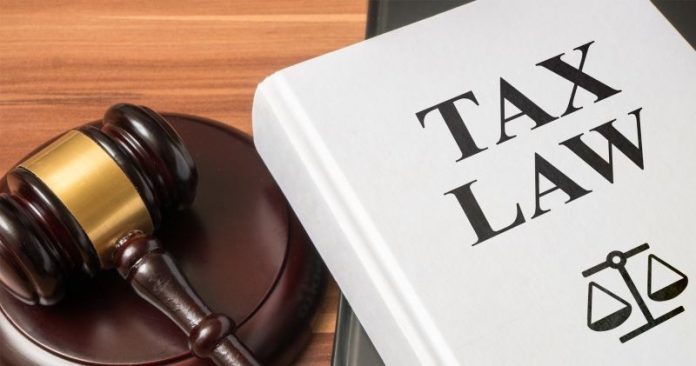LYING before the National Assembly at the moment is the proposed Tax Reform Bill formulated by the Executive arm of government to, in the words of the Presidency, drive national growth. The bill, which was presented to the nation’s legislature for the mandatory legislative input as required by the Constitution has four components.
There are as follows: Nigeria Tax Bill which seeks to streamline overlapping taxes; Nigeria Revenue Service Establishment Bill proposing to rename the Federal Inland Revenue Service (FIRS); Nigeria Tax Administration Bill, which seeks to harmonize tax processes nationwide; and Joint Revenue Board Establishment Bill designed to create a Joint Revenue Board to streamline tax administration across the country.
Of significant interest is the fresh approach by the bill to the administration of the Value Added Tax (VAT), which had been based on the production of goods and services. But under the new proposal, the bill outlines a consumption-based VAT model, which means allocating more revenue to areas where goods and services are consumed. It is reasoned that the model is structured to support areas with higher consumption level and would ensure a fair revenue allocation.
Among other potential benefits of the tax reform bill are that it would boost tax compliance, generate increased revenue, and fund essential public services. According to FIRS sources, it underscores its capacity to transform the country’s economic landscape by reducing tax complexities, and establishing a transparent equitable model. In addition, they argued the bill would align with global best practices, making the country a more attractive investors’ destination.
However, as laudable as the proposed bill seems, the governors of the 19 Northern states with their traditional rulers and crop of ex-generals have expressed staunch opposition to the bill. The key factor in their disapproval is the consumption-based model of VAT distribution proposed in the tax reform bill. Their main argument after a meeting in Kaduna was that the proposal would be a disadvantage the Northern states and other less industrialized regions. Consequently, they sued for the withdrawal of the bill.
The call to jettison the bill was given credence by the National Economic Council (NEC) chaired by the Vice President, KashimShettima. At its 144th meeting, the Council recommended the withdrawal of the bill.
Interestingly, another Northern group, Arewa Think Tank, applauded President Bola Tinubu for the innovative bill. The group insisted the tax reform bill was not targeted at the Northern states as being speculated, but a piece of legislation that should spur the states to take more seriously, the economic development of their states.
Nevertheless, the Presidency insists that the bill already before the National Assembly should be allowed to undergo the due legislative process. In fact, the body language of the President is that the bill will not be withdrawn. Yet, considering the delicate nature of the issue and the arguments so far , we are of the considered view that there should be a compromise to resolve the matter.
Factually, government needs financial contributions from citizens to meet its statutory obligations of providing the necessary public infrastructure to enhance the quality of life, socially and economically, of the citizenry. This it does by imposing taxes on individuals and corporate citizens. This, in our opinion, is what the Tinubu administration intends doing by the proposed tax reform bill. But considering the current harsh economic realities, the proposal seems to be ill-timed. Tinubu’s economic policies in the last 17 months have further impoverished a large number of citizens, and businesses are struggling to survive.
There is hardly any doubt that the proposed tax reform would dig deeper into the pockets of citizens and coffers of corporations, which may worsen their plight economically. Instead of additional tax burden in an oil-rich country where the people are obviously suffering, the citizens should be considered for some tax relief for a while. the FG should encourage more local investments at individual and corporate levels to trigger more strategic economic activities at the micro, small, medium and conglomerate levels.
Furthermore, the position of the Northern governors and NEC should not be taken for granted. The entire scenario calls for more consultation on the subject-matter, compromise and democratization of the tax reform process. Democratization is not only through legislation but also heeding the opinion of the people.


